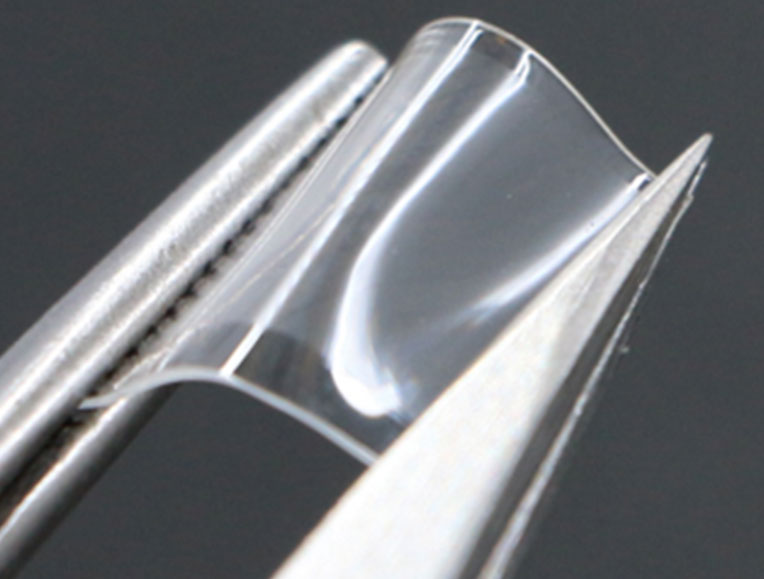Melanoma is the most serious type of skin cancer. In the United States, about 100,350 new melanoma cases will be diagnosed and 6,850 people will die of it in 2020. Conventional therapies for this skin cancer include chemotherapy and radiotherapy. However, these treatments produce toxicity and severe side effects due to the aggressive and recurrent nature of melanoma cells.
Read more Canadian Researcher Develop Low-Cost Handheld Cancer Probe to Detect Melanoma Early
Now, Purdue University researchers have developed a skin patch that can deliver chemotherapy into melanoma tumors in an effective, convenient, and painless way. The researchers published their study in the journal ACS Nano.
“We developed a novel wearable patch with fully miniaturized needles, enabling unobtrusive drug delivery through the skin for the management of skin cancers,” said Chi Hwan Lee, a Purdue assistant professor of biomedical engineering and mechanical engineering. “Uniquely, this patch is fully dissolvable by body fluids in a programmable manner such that the patch substrate is dissolved within one minute after the introduction of needles into the skin, followed by the gradual dissolution of the silicon needles inside the tissues within several months.”
Lee said this gradual slow dissolution of the silicon nanoneedles allows for long-lasting and sustainable delivery of cancer therapeutics, reports Purdue University.

“The uniqueness of our technology arises from the fact that we used extremely small but long-lasting silicon nanoneedles with sharpened angular tips that are easy for their penetration into the skin in a painless and minimally invasive manner,” Lee said.
The new bioresorbable silicon nanoneedles developed by the Purdue researchers are built on a thin, flexible and water-soluble medical film. The water-soluble film serves as a temporary holder that can be conformably interfaced with the soft, curvilinear surface of the skin during the insertion of the nanoneedles, followed by rapid, complete dissolution within a minute.
The surface of the nanoneedles is configured with nanoscale pores and provides a large drug loading capacity comparable to those using conventional microneedles.
Read more This UV Sensor Can Optimize Phototherapy and Reduce Skin Cancer Risk
Lee said the nanoneedles could deliver the chemotherapeutic drugs to target melanoma sites in a sustainable manner. The silicon nanoneedles are biocompatible and dissolvable in tissue fluids, such that they can be completely resorbed in the body over months in a harmless manner.
The researchers are now looking for partners to continue developing their technology.












